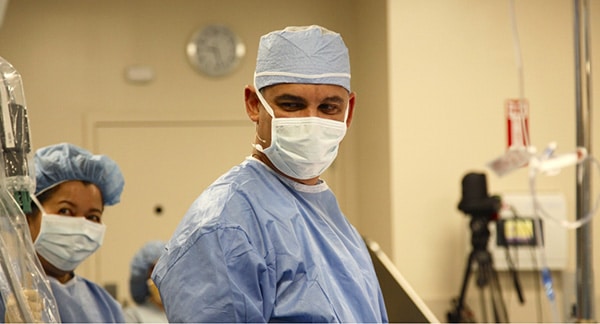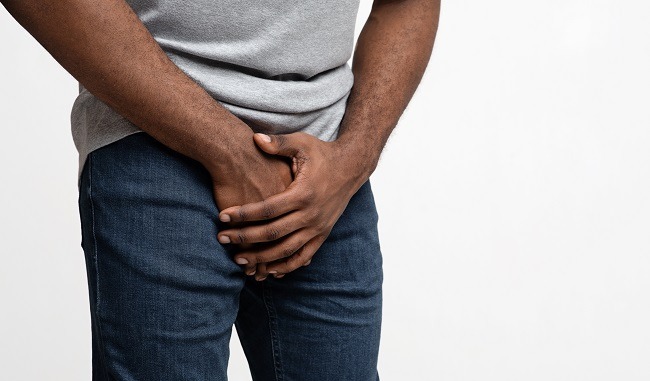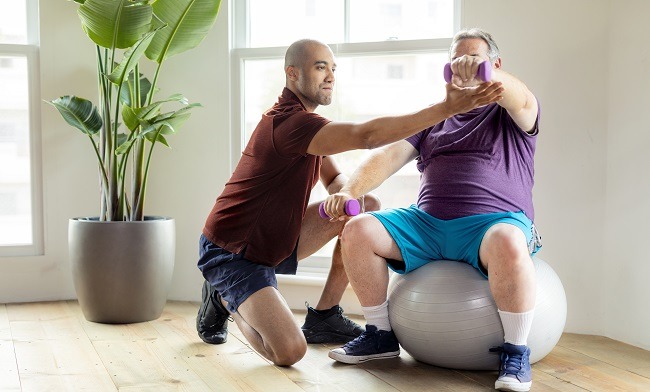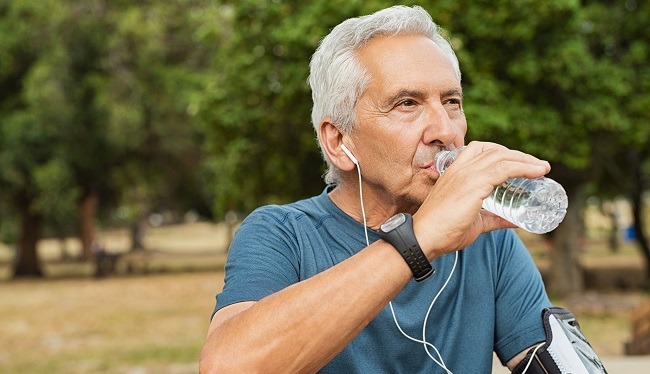As a matter of fact, remember that every disease that is early detected can be easier treated. That is why gather your courage and set up an appointment with an experienced urologist. Avoid future problems by being informed!
Urology
A person’s body is unique. Each part of it is particularly designed to fulfill a special purpose and have a predefined function. Medicine has a long way to go to understand the depths of the human body. But it has advanced significantly in the last years and each medicine specialty revealed important aspects regarding the way our body works and how can we treat possible disorders. The medical specialty that deals with the urinary system is called Urology.
What is Urology?
Urology is an essential health care part of the medical system. It focuses on the conditions of the urinary tract of both men and women. The urinary tract involves, besides others, the kidneys, the ureters, bladder, and urethra. Also, urology deals with the male organs that are part of the reproductive system: the penis, prostate, scrotum, testes, or others. A urological check-up will give you an overview of how healthy these organs. Also, it will tell you whether these important functions will be affected in the following period.

Actually, urology encompasses a wide range of clinical problems. Taking into account that the organs above mentioned are in strong connection with other parts of the body, urology also touches the fields of gynecology, pediatrics, internal medicine, or other segments. What is more, urology is considered a surgical specialty. This is because many urological problems are being treated through surgery.
Taking into account that the scope of urology is wide, the American Urological Association has defined 7 subspecialties:
- Urologic Oncology (urologic cancers)
- Pediatric Urology (children’s urology)
- Renal (kidney) Transplant
- Male Infertility
- Calculi (urinary tract stones)
- Female Urology
- Neurourology (nervous system control of genitourinary organs)
What is a urologist?
Urologists are health care providers experienced in the urinary system.

The urinary system is the part of the body that creates, stores and removes urine from the body. This system includes:
- Kidneys – organs that filter waste out of the blood in order to produce urine
- Adrenal glands – the glands located at the top of each kidney to release hormones
- Bladder – the sac-shaped organ that stores urine
- Ureters – the tubes that carry urine out of the kidneys to the bladder
- Urethra – The tube that empties the bladder and carries out the urine
Urologists also treat a man’s reproductive system, including:
- The penis – the organ that carries sperm and releases urine
- Testes – the 2 oval-shaped organs that produce sperm and testosterone, the male hormone
- Prostate gland – The walnut-shaped organ that contributes to the reproductive system by producing a fluid that combines with the sperm and produces semen
- Scrotum – the bag of skin that protects the testes and is located outside of the body
In most cases, a urologist is a specialized surgeon in treating cancer, infections, kidney stones, bladder problems, sexual dysfunction, or pelvic floor problems.
If you suffer from prostate cancer or have regular kidney problems, then a urologist can serve as your primary doctor.
What training should a urologist have?
As in any other medical specialty, training and experience are required for a trusted urologist. The urinary and sexual systems are essential for a healthy life. That is why only a high-qualified urologist can provide the insights and treatment you need.
Usually, a urologist must go through 4 years of college and then complete 5 years of medical school. After that, the future urologist will begin 4-5 years of training at a hospital, called residency. During these years, the resident acquires experience and works alongside qualified surgeons and urologists.

Additional training is done for further specializations, for example, urologic oncology or female urology. This additional training is about 1-2 years and is concluded by the specialty certification exam. After passing the exam, the urologist is fully certified by the American Board of Urology.
What training does Dr. David Samadi have as a urologist?
During his 20+ years in the field of urology, Dr. David Samadi has acquired extensive knowledge and experience to be regarded as one of the best urologists and robotic surgeons in New York.
In 1983, Dr. David Samadi started his education at Roslyn High School. After that, Dr. Samadi attended the Stony Broke University and gained his degree in biochemistry. Dr. Samadi’s postgraduate training in urology was fulfilled at Montefiore Medical Center. He finished his training in urology at Albert Einstein College of Medicine (Bronx, New York) in 1996. In 2002, Dr. David Samadi completed a robotic radical prostatectomy fellowship at Henri Mondor Hospital Creteil in Paris, France.
Following his advanced training, in 2007 Dr. David Samadi has been named Chief of the Division of Robotics and Minimally Invasive Surgery in the Department of Urology at Mount Sinai.
A very important point in Dr. Samadi’s career as a urologist is the development of SMART Surgery, a revolutionary way of doing prostate surgeries. During 2013-2019 Dr. Samadi acted as a Urologic Oncology Expert and Robotic Surgeon at Lenox Hill Hospital, New York. Nowadays, Dr. David Samadi is the Director of Men’s Health at Roslyn Hospital, New York.
As an oncology urologist, he has dedicates his life to treating prostate cancer and other urological issues.

Some of the most common urologic diseases treated by specialized urologists are:
- Benign Prostatic Hyperplasia – BPH is the enlargement of the prostate caused by a noncancerous condition. It is most common among elderly men. It causes bothersome urinary symptoms. As the prostate grows, it blocks the flow of urine through the urethra. Incontinence, dribbling urination, urgency or hematuria are some of the symptoms of BPH.
- Urinary Incontinence – The loss of bladder control can happen due to various reasons. They can be diabetes, pregnancy, overactive bladder, UTI, weak bladder muscles, or other problems. Lifestyle changes are usually recommended.
- Kidney stones – These stones form when there are particles surrounding small crystals in the urine. These stones act by blocking the flow of urine and can cause severe pain. Larger stones may result in blockage and medical or surgical procedures are needed.
- Urinary Tract Infections (UTIs) – Infections are caused by bacterias or viruses. Both men and women can suffer from UTIs. The most frequent symptom of UTI is a burning sensation while urinating. Antibiotics are usually recommended.
- Prostate cancer – prostate cancer is the second leading cause of cancer deaths in America. When prostate cells start to develop in an uncontrollable manner, cancer forms. Most cancers are organ-confined and can be treated through radical prostatectomy or other procedures.
- There are many other urological diseases urologists take care of bladder cancer, kidney cancer, overactive bladder, prostatitis, or others.
Why do you need to see a urologist?
Your quality of life depends on the well-functioning of your urinary and sexual functions. You do not have to get up in the middle of the night, take a handful of oral medications, or have unenjoyable sex life due to ED for the rest of your life.
See a urologist to receive personalized advice and to foresee any future problems. Urinary problems are known to come with age and may not cause serious symptoms. That is why regular urologic check-ups are more than recommended.

A urologist might treat bladder problems, urinary tract infections (UTIs), bladder and kidney cancer, kidney blockage, and kidney stones. Men might also see urologists for:
- Erectile dysfunction (ED)
- Enlarged prostate gland
- Prostate cancer
- Testicular cancer
Women might also see a urologist for:
- Problems holding your pee after pregnancy
- Pelvic organ prolapse
What can you expect from a visit to Dr. Samadi’s office?
Your first appointment with Dr. Samadi may not be different from a visit with your primary doctor. But you must remember that even if the urological problems are a delicate topic, do not feel embarrassed to talk about your health issues. Dr. Samadi is here to listen to your concerns and want to provide the most tailored medical care.
Firstly, you will be asked to fill out forms and answer questions about your health history, current symptoms, and any medicines you take.
Depending on your state, Dr. Samadi will do a physical exam that includes a genital and rectal exam. If the situation requires, blood works or imaging tests may be ordered. A CT scan or ultrasound may be needed for a closer look at your organs.
Being an experienced urologist, Dr. Samadi combines the data he receives from the pathologists, with the data he himself collects from the patient while examining him in order to establish the most accurate patient profile.
Being an experienced urologist, Dr. Samadi combines the data he receives from the pathologists, with the data he himself collects from the patient while examining him in order to establish the most accurate patient profile.
What procedures do urologists perform?
Urologists are a man’s best bet for addressing many areas of men’s health in regards to a man’s “plumbing.” The procedures they perform at check-ups or appointments are dependant on your condition and risk. When you see a urologist, they will do one or more tests in order to determine your diagnosis.

What are the urological tests urologists usually do?
- Imaging tests, such as a CT scan, MRI scan, or ultrasound – these procedures allow them to see inside your urinary tract
- Cystogram – which involves taking X-ray images of your bladder
- Cystoscopy – This involves using a thin scope called a cystoscope. It is used to see the inside of your urethra and bladder
- Post-void residual urine test – it is used to find out how fast urine leaves your body during urination and how much urine is left in your bladder after urination
- Urine sample – used to check your urine for bacteria that can cause infections
- Urodynamic testing – used to measure the pressure and volume inside the bladder
Types of surgeries urologists perform
- biopsies of the bladder, kidneys, or prostate
- prostatectomy – removing all or part of the prostate gland because of prostate cancer
- cystectomy – the removal of the bladder performed to treat cancer
- extracorporeal shock-wave lithotripsy – breaking up kidney stones to remove them more easily
- kidney transplant – replacing a diseased kidney with a healthy one
- procedure to open a blockage – for example, Urolift procedure or TURP to treat BP
- repair of damage due to injury – on the testicles or other organs
- repair of urinary organs that aren’t well-formed
- sling procedure – which involves using strips of mesh to support the urethra to treat urinary incontinence
- transurethral resection of the prostate – removing the excess tissue from an enlarged prostate
- transurethral needle ablation of the prostate – removing additional tissue from an enlarged prostate
- ureteroscopy – using a scope to remove stones in the kidneys and ureter
- vasectomy to prevent pregnancy – cutting and tying the vas deferens or the tube sperm travel through to produce semen and thus, avoiding reproduction
What treatments are usually recommended by urologists?
If your diagnosed procedure is not that severe, urologists usually prescribe oral medication or only behavioral changes.
For example, you can manage some problems withholding in your urine by doing exercises that strengthen your pelvic muscles, such as the well-known Kegel exercises.

Urologists can also do a range of procedures. Some of these procedures are done in their office. Other major surgeries, such as radical prostatectomy, are done in a hospital.
Before recommending a treatment, a urologist may perform:
- Cystoscopy – a close-up look at your bladder and urethra with a special scope named cystoscope
- Ureteroscopy – a look inside your ureters and kidneys
- DRE – Digital rectal exam
- PSA test – a blood test to measure the level of prostate-specific antigens in the blood
- Prostate biopsy – Removal of a tiny tissue sample from your prostate to test for cancer in a lab. MRI- guided biopsies are more effective in prostate cancer detection.
Depending on your personal urological problem, the urologist will balance the facts and prescribe the best course of action. For example, if you suffer from ED (erectile dysfunction), the first line of treatment is medication, Viagra, Cialis, or others. If that does not work, then the urologist may recommend a penis pump. If everything fails, a penis implant may solve the problem.
When it comes to prostate cancer, radical prostatectomy is the best way to go, according to Dr. Samadi. But why? It is the only procedure that once performed can reveal the exact amount of cancer located in the body and has a success rate of almost 98%. Patients have undetectable PSA after it and there are rare cases of recurrent cancer. However, if this happens, radiation can be an option after surgery, but surgery after radiation is almost impossible. Contact Dr. Samadi for the best advice on prostate cancer treatment!
How to improve your overall urologic health?
They all say that it better to prevent, than treat. And that is so true!

Here are some practical pieces of advice to stay healthy, take care of your urinary system and prevent urological problems:
- Limit your caffeine and salt intake
- Drink more liquids to stay hydrated
- Take care of your weight and stay in a healthy weight range – obese people tend to have more urological problems
- Avoid smoking
- Practice Kegel exercises to strengthen the pelvic area
- Do not drink too much before bed
- Drink cranberry juice to prevent urinary infections
- Do not postpone your regular check-ups
